university.nakul@gmail.com | Posted on | sports
How will Surfing's Debut at Paris 2024 Impact the Olympics?
university.nakul@gmail.com | Posted on
Surfing’s inclusion in the Olympic Games marks a significant milestone for the sport, with its debut in Tokyo 2020 and a return to Paris 2024. The upcoming Olympics will take place in Teahupo’o, Tahiti, a location renowned for its challenging waves and rich cultural history. This article explores the implications of surfing's debut in Paris 2024, examining its impact on the Olympics, the evolution of the sport, and the broader cultural significance.
The Significance of Surfing in the Olympics
1. A New Era for the Olympics
The addition of surfing to the Olympic program represents a shift towards including more dynamic and youth-oriented sports. The International Olympic Committee (IOC) aims to attract younger audiences by incorporating sports that resonate with contemporary culture. Surfing, with its roots in youth culture and lifestyle, aligns perfectly with this vision.
2. Historical Context
Surfing has a storied history, dating back to ancient Polynesian culture. The sport was popularized in Hawaii before being introduced to the world. Despite efforts to include surfing in the Olympics since the 1920s, it wasn’t until the Tokyo 2020 Games that it made its Olympic debut. The return in Paris 2024 signifies the sport's growing acceptance and recognition on a global stage.
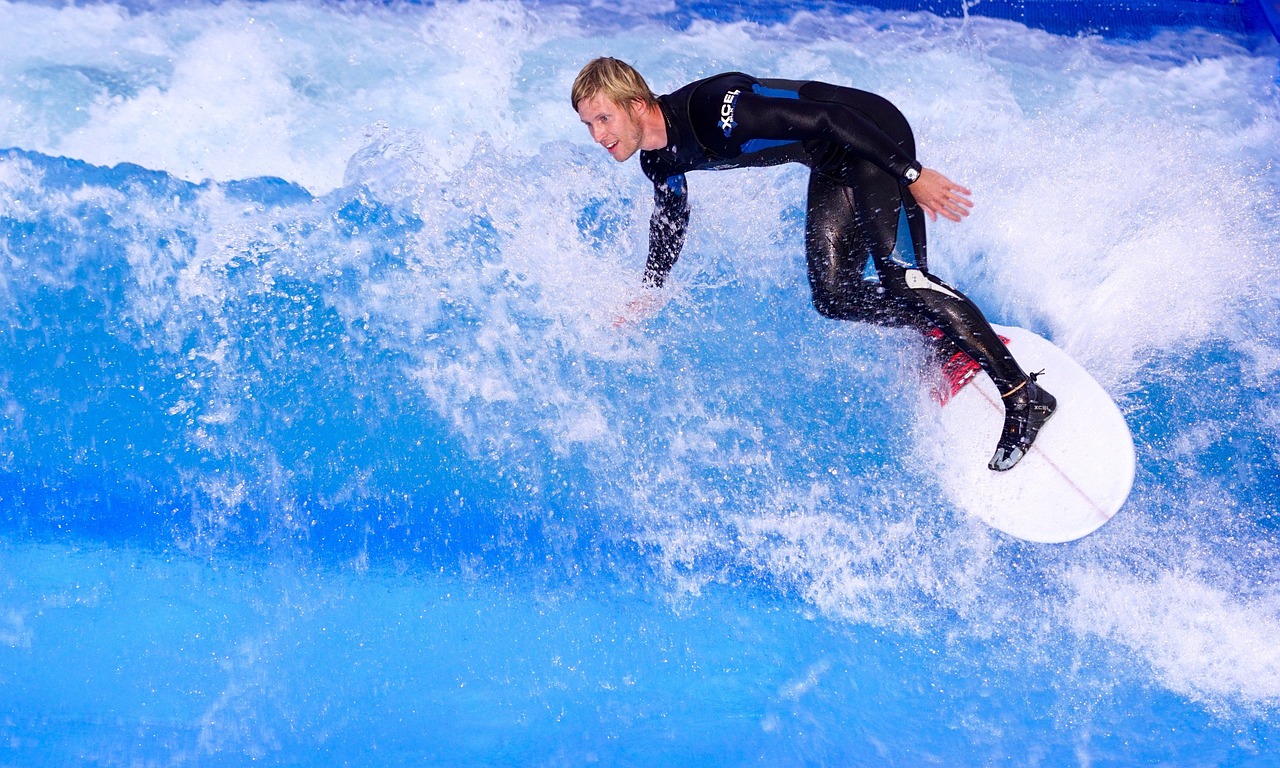
The Venue: Teahupo’o, Tahiti
1. A Unique Location
Teahupo’o, located in French Polynesia, is famous for its powerful and picturesque waves. The decision to host the surfing events there, approximately 16,000 km from Paris, emphasizes the importance of wave quality over proximity to the host city. The waves at Teahupo’o are considered among the most challenging in the world, providing a fitting backdrop for Olympic competition.
2. Cultural Connection
Hosting the surfing events in Tahiti allows the Olympics to showcase the cultural heritage of French Polynesia. This connection to the sport's origins adds depth to the Olympic narrative, celebrating the roots of surfing while promoting the beauty and culture of the region.
Impact on Athletes and the Sport
1. Increased Exposure for Surfers
The Olympic platform provides surfers with unprecedented visibility. Athletes like Carissa Moore and Gabriel Medina, who have already made their mark in professional surfing, will gain further recognition on an international stage. This exposure can lead to increased sponsorship opportunities and inspire a new generation of surfers.
2. Elevating Women's Surfing
The inclusion of women’s surfing in the Olympics highlights the progress made in gender equality within the sport. Women surfers have historically faced disparities in competition opportunities and prize money. The Olympic platform allows female athletes to showcase their skills and achievements, potentially inspiring more young women to participate in the sport.
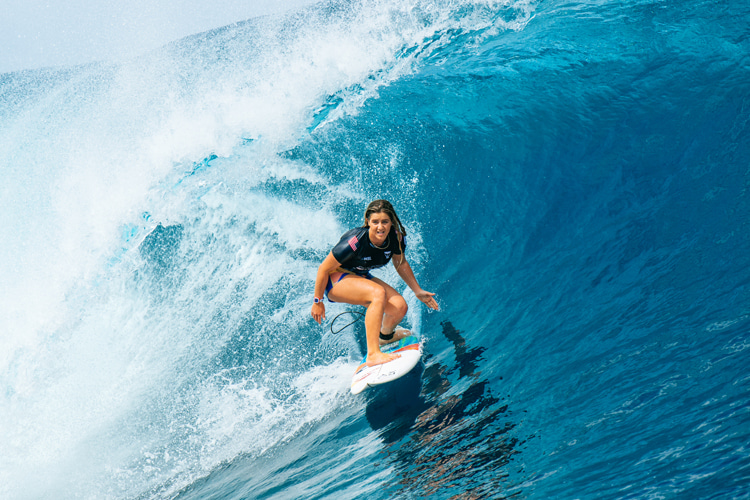
The Competitive Landscape
1. Scoring and Judging
Surfing competitions are judged based on a combination of wave selection, maneuver variety, and overall performance. A panel of five judges scores each surfer's best two waves, emphasizing the importance of both technical skill and artistic expression. This scoring system will be crucial in determining Olympic champions and could influence future competition formats in professional surfing.
2. The Challenge of Conditions
The unpredictable nature of ocean conditions adds an element of excitement and uncertainty to the competition. Athletes must adapt to varying wave sizes and weather conditions, showcasing their versatility and skill. This aspect of surfing can lead to dramatic performances and unexpected outcomes, enhancing the overall spectacle of the Olympic events.
Broader Cultural and Economic Implications
1. Promoting Surf Tourism
The Olympic spotlight on Tahiti could boost surf tourism in the region. Increased interest in the sport may lead to more visitors seeking to experience the waves of Teahupo’o. This influx of tourists can benefit the local economy, providing opportunities for surf schools, accommodations, and local businesses.
2. Environmental Awareness
Surfing's connection to the ocean also presents an opportunity to raise awareness about environmental issues. The Olympics can serve as a platform to promote ocean conservation and sustainability, highlighting the importance of protecting marine ecosystems. Athletes and organizers can advocate for environmental stewardship, inspiring fans to engage in conservation efforts.
Conclusion:
The debut of surfing at the Paris 2024 Olympics is poised to have a profound impact on the sport, the athletes, and the Olympic movement as a whole. By embracing surfing, the Olympics not only modernizes its image but also honors the cultural heritage of the sport. As athletes take to the waves in Teahupo’o, the world will witness the beauty, excitement, and challenges of surfing, paving the way for its future in the Olympic arena. The implications of this debut extend beyond the competition itself, influencing perceptions of gender equality, environmental stewardship, and the cultural significance of surfing. As the Olympic Games approach, all eyes will be on Tahiti, where the world's best surfers will compete for glory against the backdrop of one of nature's most magnificent settings.
0
0 Comment
| Posted on
Surfing's Debut at Paris 2024 Will Impact the Olympics
Introduction
The Paris 2024 Olympics are set to be a milestone event, not just for its location but for including new and exciting sports. One of the most anticipated debuts is Surfing, a sport that combines athleticism, artistry, and a deep connection to nature. This article explores how Surfing's inclusion in the Olympics could reshape the Games, its potential impact on the sport, and the broader implications for the Olympic movement.
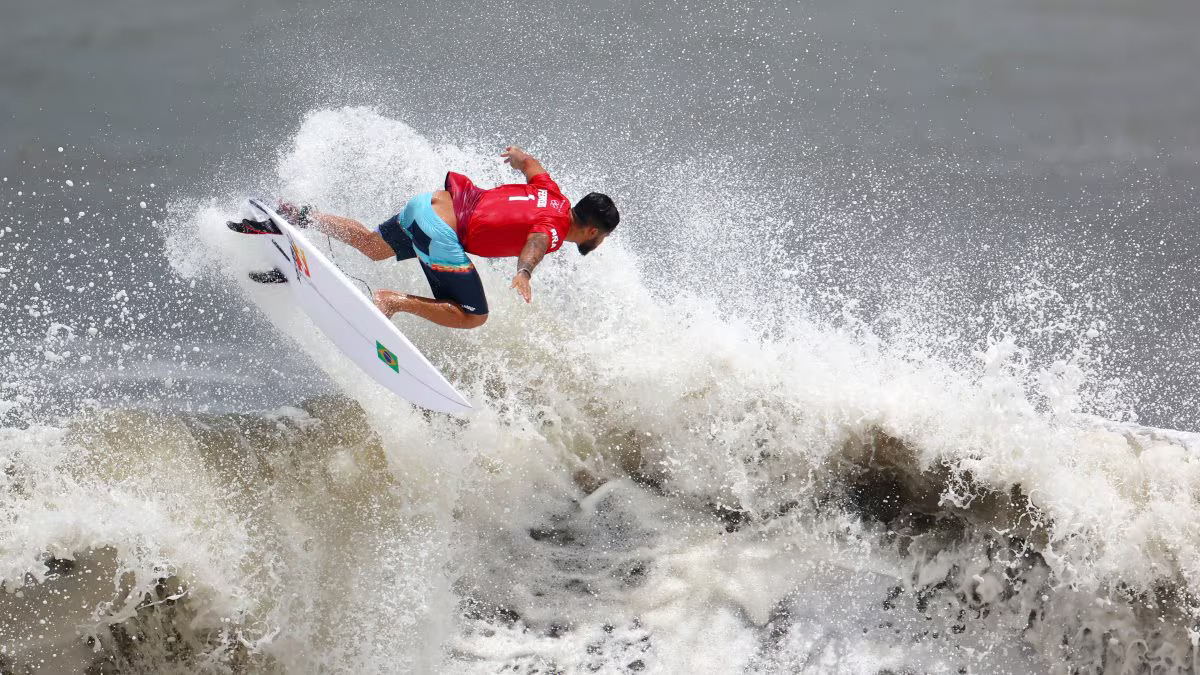
The Evolution of Surfing
Surfing, with roots traced back to ancient Polynesia, has evolved significantly. From its origins as a spiritual practice to its development into a global sport, surfing has captured the imagination of millions. The modern era of surfing, characterized by professional leagues and international competitions, has brought the sport to the forefront of athletic performance and entertainment.
Historical Context
Origins and Cultural Significance: Surfing began in the ancient Polynesian islands, where it was more than just a sport; it was a cultural and spiritual practice. Early Hawaiian surfers, known as "Kanaka Maoli," revered surfing as a way to connect with the divine and the natural world.
Global Expansion: In the 20th century, surfing spread globally, gaining popularity in the United States, Australia, and Europe. The establishment of professional surfing leagues, such as the World Surf League (WSL), has elevated the sport's profile and competitiveness.
Modern Surfing
Professional Competitions: The rise of professional surfing has introduced new levels of skill and performance. Surfers now compete in a series of international events, with the World Surf League serving as the pinnacle of competitive surfing.
Influence of Technology: Advances in technology, including surfboard design and wave forecasting, have transformed the sport. Surfers can now access detailed wave data and utilize high-performance equipment to enhance their skills.
Surfing's Olympic Journey
The inclusion of surfing in the Olympics represents a significant milestone for the sport. The International Olympic Committee (IOC) officially recognized surfing in 2016, and it made its Olympic debut at the Tokyo 2020 Games.
The Tokyo 2020 Experience
First Appearance: Surfing's debut in Tokyo was a historic moment, showcasing the sport's unique appeal and athleticism. The competition took place at Shidashita Beach, providing a picturesque backdrop for the event.
Impact and Reception: The Tokyo 2020 Olympics highlighted surfing's potential to captivate a global audience. The event received widespread praise for its integration into the Olympic framework and the high level of competition displayed.
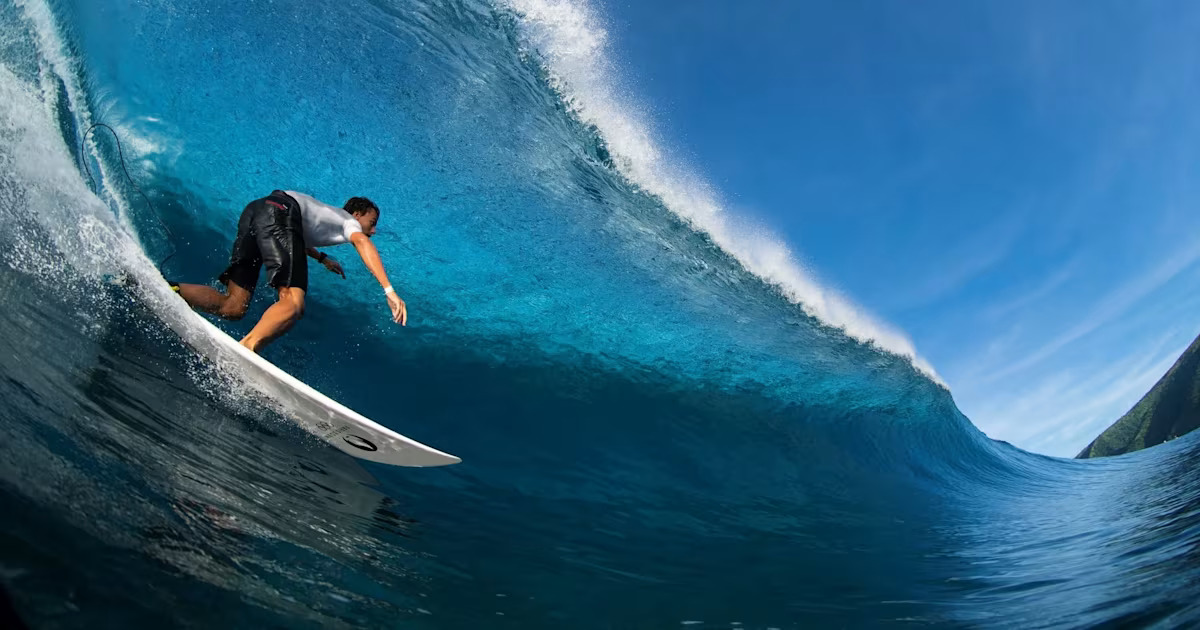
Paris 2024 Preparations
Location and Venue: For Paris 2024, surfing will be held at the iconic Teahupo'o wave in Tahiti, French Polynesia. This location is renowned for its challenging and powerful waves, promising a thrilling competition for athletes and spectators alike.
Qualification and Selection: Surfers will have the opportunity to qualify through a series of events leading up to the Olympics. The qualification process aims to ensure that the best surfers from around the world compete for Olympic medals.
Impact on the Olympics
The inclusion of surfing in Paris 2024 will have several implications for the Olympics, influencing both the sport and the broader Olympic movement.
Broadening the Appeal
Attracting a Younger Audience: Surfing's inclusion is part of the IOC's strategy to appeal to younger audiences. The sport's dynamic and visually appealing nature is expected to attract a new generation of Olympic viewers.
Cultural Relevance: Surfing's association with beach culture and environmental consciousness aligns with contemporary values and interests, further enhancing its appeal.
Enhancing the Olympic Experience
Diverse Competition: Surfing adds a new dimension to the Olympic program, showcasing a variety of sports and disciplines. This diversity enriches the overall Olympic experience and highlights different aspects of athleticism and skill.
Environmental Awareness: The sport's emphasis on ocean conservation and environmental stewardship resonates with global concerns about climate change and sustainability. Surfing's presence at the Olympics can help raise awareness about these critical issues.
The Future of Surfing in the Olympics
Looking ahead, Surfing's role in the Olympics is likely to evolve. The Paris 2024 Games will set a precedent for future Olympic surf competitions and shape the sport's trajectory on the global stage.
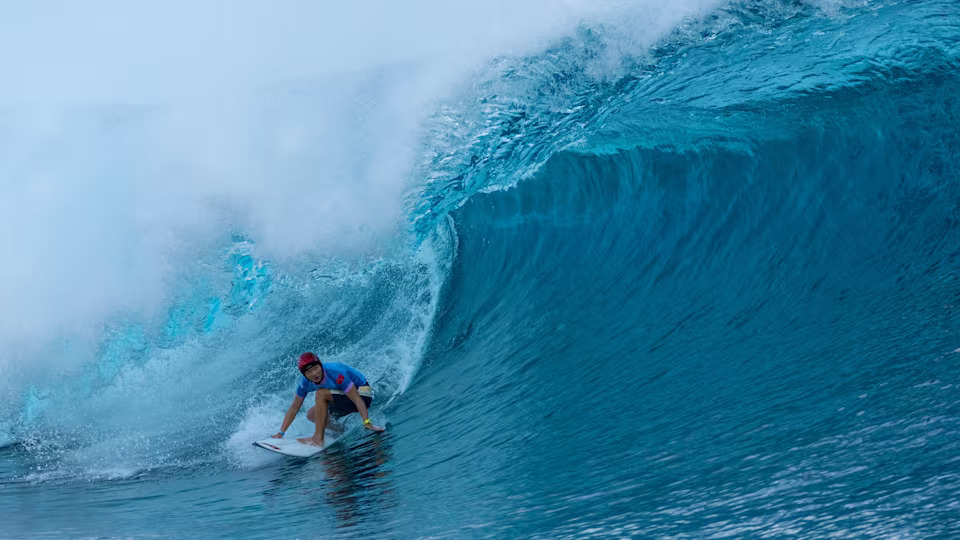
Growth and Development
Increased Popularity: As surfing continues to gain recognition, its popularity is expected to grow, both in competitive contexts and recreationally. The Olympic spotlight will likely accelerate this growth.
Future Innovations: Advances in technology and training methods will influence the sport's development. Innovations such as artificial wave pools and advanced surfboard designs could play a role in shaping future Olympic competitions.
Long-Term Impact
Sustainable Practices: Surfing's focus on environmental issues may inspire the Olympics to adopt more sustainable practices and promote ecological responsibility.
Global Engagement: Surfing's global appeal can foster greater international collaboration and engagement within the Olympic movement, further strengthening the Games' role as a unifying force.
Conclusion
Surfing's debut at the Paris 2024 Olympics represents a significant moment for both the sport and the Olympic movement. By introducing a dynamic and culturally relevant sport to the Olympic stage, Paris 2024 promises to enhance the Games' appeal, engage new audiences, and highlight important global issues. As surfing takes its place among the Olympic sports, it will undoubtedly leave a lasting impact on the Olympics and continue to inspire future generations of athletes and fans.
0
0 Comment
